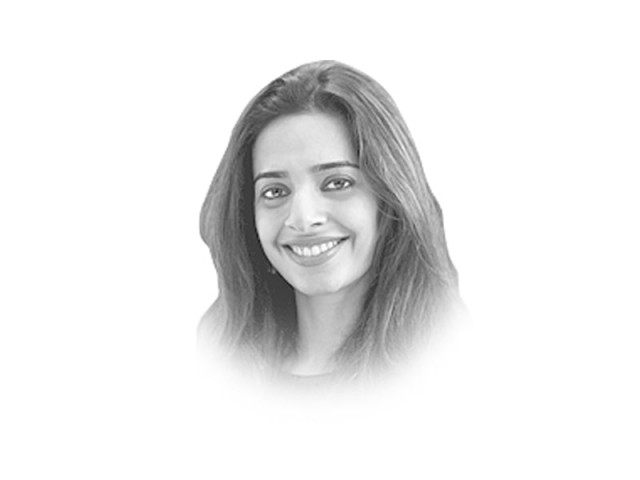On conspiracy theories, education and the state
Pakistani society is tight-knit and the opinions of those one trusts are taken on faith –– never questioned.

The writer is an assistant professor of public policy at the University of Maryland, and a Non-Resident Fellow at the Brookings Institution. She tweets @MadihaAfzal
Note that some conspiracy theories may be true; still others may contain some element of truth. This piece will attempt to unpack why false conspiracy theories exist and thrive in the Pakistani context, and what, if anything, can be done to counter them. I have argued previously (in columns in this space) that Pakistan’s education system breeds the nation’s fetish for these theories: specifically our biased textbooks, which point fingers in various directions, unquestioning learning in schools, and a lack of reliance on multiple unbiased sources of information.
My latest analysis builds on insights from an excellent academic article on conspiracy theories by Harvard Law professors Cass Sunstein and Adrian Vermeule, who define these as “an effort to explain some event or practice by referring to the machinations of powerful people, who have also managed to conceal their role.” Conspiracy theories overestimate the ability of entities and agents to act in unison, to plan secretly in order to intentionally affect outcomes, especially in open societies. The authors highlight the ‘self-sealing quality’ of such theories, whereby any attempts to rebut the theory can easily be explained as a ploy by powerful people or their agents to cover their tracks, and as further proof of the theory –– making it very difficult to counter conspiracy theories.
Sunstein and Vermeule argue that accepting conspiracy theories should not be seen as the product of individual pathologies or mental impairment, but rather as a result of poor information and the ways in which that information spreads in various groups or societies. Conspiracy theories can be propagated by ‘conspiracy entrepreneurs’ who profit from them, or can arise as speculation to explain something inexplicable (and assign blame and intent somewhere, which is natural). What makes these theories spread are ‘informational cascades’, where individuals in a tight group rely on the judgment of others they trust to form their own opinions if they cannot seek out the information themselves; for each successive individual, it becomes harder to oppose the theory since people he knows (and trusts) accept the theory, so he goes along with it as well. Conspiracy theories are likely to prosper in closed societies with limited civil rights and liberties, few sources of information, and a distrust of government. Finally, any attempts to counter a conspiracy theory (by a sincerely motivated government, for instance) may lead to further spreading of the theory by legitimising it in a public space.
The above framework yields insights into the inherent difficulty of the state rebutting conspiracy theories and helps identify a number of additional difficulties in the Pakistani context: the state is widely distrusted (and considered an occasional conspirator), and it is often in the state’s own interest to point the finger of blame elsewhere, or ‘outside’, to avoid being held accountable for its various internal failures.
We know that the Pakistani state has heavily used the country’s education system as a means of propagating a national narrative and identity that pits Pakistan against India and the non-Muslim world; to accomplish this, it has presented a one-sided view of history, discouraged debate and directly engaged in identifying conspiracies as playing a large role in affecting Pakistan. The separation of East and West Pakistan, as an example, is written about in Pakistan Studies textbooks as the result of ‘international conspiracies’, and ‘a secret arrangement of big powers’.
But equally important, given Sunstein and Vermeule’s argument, is the fact that the education system does not teach students how to evaluate the quality of information and seek out multiple sources of information. Pakistani society is tight-knit and the opinions of those one trusts are taken on faith –– never questioned. This means that if the person with whom a conspiracy theory originates is respected, an informational cascade will likely begin.
Acquiring information in this way is partly a trait of Pakistani culture and cannot be easily changed. But it is also a direct by-product of Pakistan’s education system and the lack of emphasis on acquiring and critically evaluating multiple sources of information. This kind of critical and analytical thinking is a skill that can be learned well in school and a reformed education system can directly address this. In Pakistan, this may well be the policy solution to counter rampant conspiracy theorising in the absence of direct state rebuttals (for the reasons given above).
What is at stake, you ask? Aren’t conspiracy theories harmless? Far from it. At worst, conspiracy theories beget violence. Even at best, they result in zero introspection and examination of our national failures; surely we cannot grow as a society until we engage in lengthy self-examination.
Published in The Express Tribune, May 1st, 2014.
Like Opinion & Editorial on Facebook, follow @ETOpEd on Twitter to receive all updates on all our daily pieces.















COMMENTS
Comments are moderated and generally will be posted if they are on-topic and not abusive.
For more information, please see our Comments FAQ